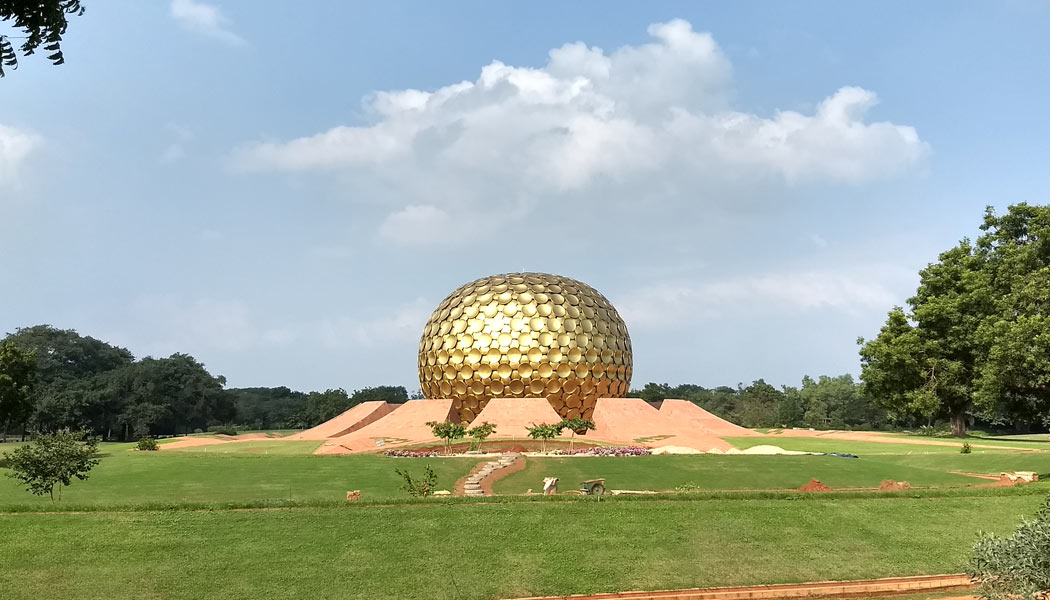Pondicherry is a peaceful little town filled with history, spirituality, French heritage, beautiful beaches, calm & well-planned streetscapes, handicrafts, incredible personalities and unique Franco-Tamilian (creole) culture a. Pondicherry is spattered and distributed into many charming quarters with splendid French town and active Tamil quarters where the culture, people and the architecture & streetscapes completely differs.
The pre-historic days of pondicherry are not of much light as it was only full of wetlands, swamps and rocky and red earth mounds and ravines – Also there are no conclusive research done on this area. It could have been active since the megalithic times – Burial urns, hunting tools and few megalithic installations prove this fact and help to decipher this information.
The mentions of Pondicherry itself can be traced backed to 2500 BC where it was also mentioned as ‘Poduca’ by famous Greek Geographer – Claudius Ptolemy – the town was locally called as ‘Arikamedu’ – meaning eroding mound. An iconic historic jewel in the Coromandel Coast. Poduca was an entrepot – a trade center – which has trade connections with Greco Romans and Ancient China. The art of making glass beads was invented in Pondicherry and was exported to various part of the globe. Excavations done at the site now managed under Archaeological Survey of India prove these facts.
The later Vedic period makes Pondicherry as Vedapuri – a university of learning on various subjects. Records from copper plates leads to these facts. Then Pondicherry came under the Pallavas, Cholas, Vijayanagar Kingdom and sultans until the European settlements stepped in. The Dutch, Portuguese, Danes, English and French influenced Pondicherry. But it was French who had control over 280 years.
Pondicherry can be said as land of siddhars, one can find many jeeva samathi in and around the city (means “becoming one” with the universal consciousness or merging with the Divine.). There are many story legends attached to it through expressions of hundred plus sacred groves scared in and around Pondicherry.
Another blend of french and Indian heritage is Creole culture with its unique cuisine in Pondy. Also, Pondy’s Vietnam connection, where soldiers from Pondy fought in World War 1 in Vietnam (Saigon – Now Ho Chi Minh city), this led to blend of Vietnamese connection found in Pondy. Vietnamese cuisine, and monuments related to it.
Another striking feature of Pondy is it had great revolutionaries and freedom fighters such as Shri Aurobindo, Subramaniya Bhartiyar, Bharatidhasan etc. who also contributed to literature, one can find Shri Aurobindo ashram, Research centers on Bharatiyar and Bharathidasan in the boulevard. May be this is one of the places where travellers can get to know on various themes on Pondy from Heritage, culture, shopping, crafts and arts, gourmet, health and wellness, rural prospects, and enjoy all within a small area. Pondicherry offers lots to be experienced rather than just glancing through. It has a perfect blend of west and lndia, which makes Pondicherry very special among the Indian and foreign tourists.
Today the Union Territory of Pondicherry is proud of its uniqueness in India, The French art of living, The Petanque players, the old houses, whether colonial or Tamil are all signs that, at least for Indians, Nehru’s French window on India has remained open. If the trilingual or Tamil, French and English envisaged by the Treaty of Cession has not been quite realized, the Sri Aurobindo Ashram, The ‘heart of the cities as a living seat of the French language. Les Optants or those who chose French citizenship in 1962, continue to interact with the country and return every summer, bringing back a whiff of France in their bags and lifestyle that lingers on long after they disappear again. Some French civil servants were able to stay on as the Cession Treaty allowed France to maintain several institutions: a Consulate, a Lycee Francais or high school, Alliance francais – a language lab, Research institutions – The institute Francoise de Pondicherry and the Ecole Francoise d’Extreme-orient.
Pondicherry can rightfully boast of its many advantages: A cosmopolitan and open population, excellent hospitals, a growing university, invaluable French library, an attractive urban setting, well worth restoring and protecting and an Ashram renowned both in India and abroad. The ability to navigate periods of transition could open Pondicherry to a unique destiny as the intellectual, cultural and service sector capital of South India.


One Comment